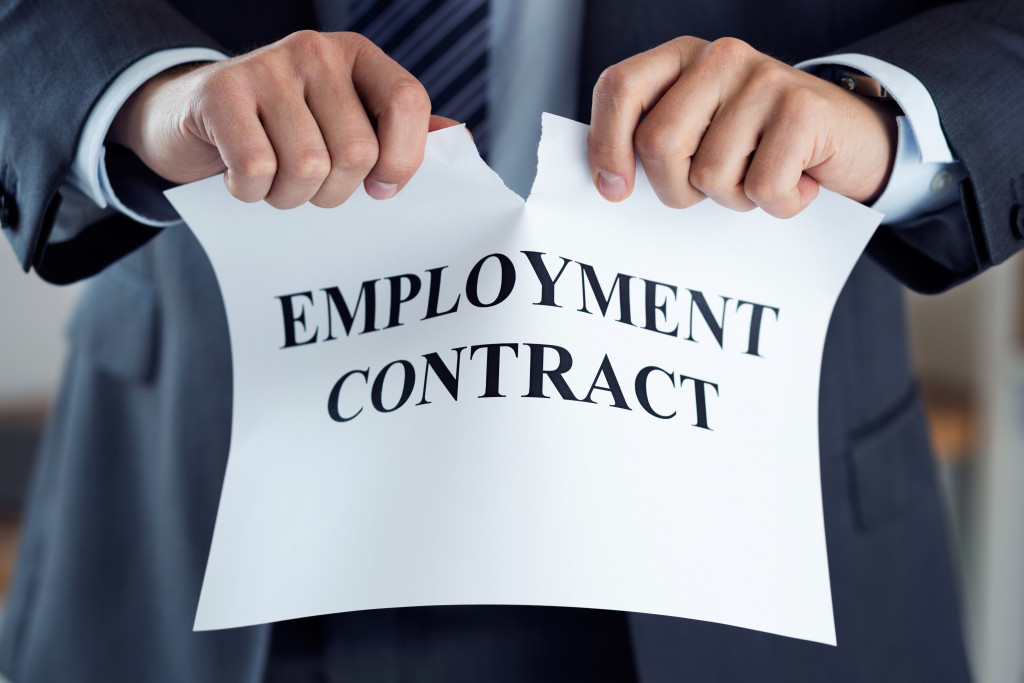Sometimes, people will find themselves on the wrong end of the long arm of the law. When this happens, they usually face some form of punishment from a judge, but luckily, most people we know (and, probably, most people reading this article) will, at worst, commit a minor misdemeanor or a non-violent crime, and the courts will be a bit lenient.
In times of judicial leniency and mercy, the courts will often use probation rather than hard jail time to teach offenders a lesson. But what exactly is court probation, what are its conditions, and what happens if you violate it?
What is Court Probation?
In layman’s terms, a court probation is a sentence that allows the offender to serve out their sentence outside of jail, albeit under the supervision of the court and its officers. Often, court probation is handed down to offenders who have committed non-violent crimes, minor misdemeanors, and other offenses that don’t necessarily endanger the lives of the community. This doesn’t mean, however, that it’s a sign that the criminal case was weak; rather, probation comes after thorough analysis by a judge, taking into consideration numerous factors like previous criminal records, the crime itself, and so on and so forth.
Under court probation, an offender is usually given a long and exhaustive list of conditions that they must follow if they wish to continue living outside of jail. Often, people under probation must meet with a probation officer (a court-assigned individual that assesses whether or not an offender is following the court probation conditions) on a regular basis, and must usually report to court-mandated community service and/or therapy. Any violation of the conditions, and they risk being sent to jail to serve out the rest of their sentence.
Court probation is held in a special type of court called a probate court or a probation court. Here, judges exclusively deal with probation cases, from handing down probation, reviewing a person’s probationary status, or analyzing whether or not a person violated their probation conditions. If it’s the latter, the probate court will also decide what additional punishment will be meted out for every instance of a violation.
What are the Conditions of Court Probation?
The exact conditions of a persons court probations will vary wildly depending on your jurisdiction, the offense that you were convicted for, your criminal record (if applicable), how good your trial lawyer argued for you, and how lenient the judge is. It also depends on the type of court probation handed to you, whether it’s supervised or unsupervised (also known as formal and informal probation, respectively).
Often, the conditions of a person’s court probation are set by the judge who heard the case, and in most cases, the judge has broad and sole discretion on the conditions they set. There are, of course, guidelines that judges must adhere to regarding statutory probations; however, the judge can either add or subtract certain conditions depending on their judgment. In some cases, usually during formal probation, it’s the probation officer who sets the conditions using state and federal guidelines, although the judge may or may not agree to all of it.
Some of the most common conditions for informal court probations include, but are not limited to:
- Financial restitution to the victims and/or payment of fines
- Serving a set amount of community service hours
- Scheduled meetings with a probation officer
- Regular court appearances (or when ordered to appear)
- Submission to random drug testing
- Submission to warrantless searches by a probation officer
- Avoidance of individuals with criminal records
- Avoidance of places that are associated with criminal activity
- Avoidance of committing any further offenses or crimes
Common special probation conditions include:
- Compliance with a house arrest program
- Attending drug or alcohol treatment programs
- Regular payment of all court-ordered child support or other family support obligations
- Registering as a sex offender if required
Is Court Probation Different from Parole?
Yes, court probation and parole are different. Probation refers to a situation wherein the offender can serve their sentence without jail time, while parole is the supervised release of a person after they’ve served their jail and/or prison sentence. Another key difference is that a court probation is issued by a judge during the trial, while parole is granted after an offender has served a nominal amount of jail time. Probation is issued by a judge, while parole is granted by a parole board.
Either way, both scenarios offer the offenders a chance at rehabilitation and saving them from future prison time. In both scenarios, however, the offender must adhere to a very strict set of rules and regulations set by the court as well as by their probation officers.
What are the Different Types of Probation?

There are different types of court probation that a judge could issue, all of which is dependent on the type of crime, the history of the offender, what risks they pose to others and their community, and other discretions the judge may take. Regardless, however, the goal of probation is to provide the offender with a chance at rehabilitation, and as such, allows them to lead a normal life and reintegrate into lawful society.
The different types of probation that can be issued include, but are not limited to:
- Unsupervised Probation – Often issued for less serious and non-violent offenses, this type of probation allows the offender to be without direct supervision from an officer. However, they’re still required to adhere to the court-mandated probation conditions.
- Supervised Probation –This type of probation requires the offender to check-in with a court-mandated probation officer on a regular schedule. The schedule and the type of interaction is dependent on the conditions set by the court, but it usually requires either daily, weekly, or monthly phone calls and/or personal appearance with the probation officer.
- Community Control Probation – This type of probation is also called House Arrest, and requires the offender to be confined to their homes at all times until their sentence is complete. In this type of probation, the offender is required to wear a tracking device that allows the court and police to monitor their whereabouts at all times. In some cases, however, the offender can be allowed to leave their homes, but only to go to work or school.
What Happens if You Violate a Court Probation?

When an offender violates the terms of their court probation, they can be issued a felony probation violation, which will usually result in either additional restrictive conditions or, depending on the violation and the initial offense, jail time. The exact consequences for a felony probation violation will be different depending on the severity of the violation, the seriousness of the initial crime, and the discretion of the judge and/or probation officer. Often, the court will look at the offender’s past violations (if there are any), and the circumstances surrounding their violation.
The most common types of probation violation include, but are not limited to:
- Failure to appear in court dates (or when ordered)
- Failure to report to the probation officer
- Failure to pay fines or restitution
- Failure to carry out the court-mandated community service
- Associating with people with criminal records
- Traveling out of the county or state without permission from the court or the probation officer
- Possession and usage of illicit substances
- Being arrested for any reason
Depending on the situation, a probation officer can either file the violation and submit it to the court, where a judge will then review the case and decide whether or not to increase conditions and/or recommend jail time, or simply issue a warning. Again, this will vary depending on the context of the violation, the amount of times you’ve violated conditions before, and whether or not your viu







